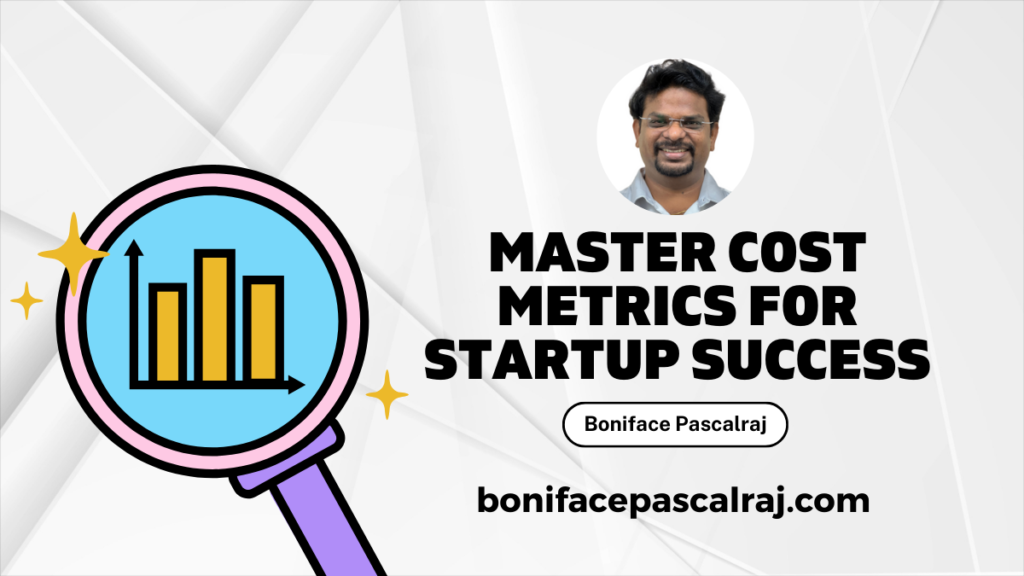In the dynamic world of startups, understanding and managing costs is crucial for sustainable growth and profitability. Costs refer to the expenses incurred in producing goods or services, and they can be classified into various categories such as fixed costs, variable costs, direct costs, and indirect costs.
By effectively monitoring and analyzing these costs, businesses can make informed decisions on pricing, budgeting, and overall financial strategy. This article delves into the essential concepts of cost management, providing formulas, examples, and benefits to help startups optimize their financial performance.
Costs
Costs are financial metrics representing the expenses incurred in producing goods or services. They are essential for businesses to understand and analyze as they enable informed decision-making on pricing, budgeting, and profitability. By monitoring and managing costs effectively, companies can improve their financial performance and achieve their business objectives.
Formula: Total costs = Fixed costs + Variable costs
Fixed Costs: Fixed costs are overhead expenses that do not change regardless of the level of production or sales. These costs include rent, insurance, and salaries, and remain constant, needing to be paid regularly.
Variable Costs: Variable costs are expenses that vary depending on the level of production or sales. Examples include raw materials, labor, and utilities. Variable costs increase with production and decrease when production falls.
Illustration: Consider a tech startup with fixed costs such as office rent and salaries for employees. These costs remain the same regardless of whether the company sells 100 or 1,000 products. Variable costs, however, may include purchasing additional servers to handle increased website traffic or marketing expenses to promote a new product. As the startup grows and produces more products, variable costs will increase to support this growth.
Fixed costs:
– Rent for office space: INR 50,000 per month
– Salaries for employees: INR 100,000 per month
Total fixed costs:
= Rent for office space + Salaries for employees
= INR 50,000 + INR 100,000
= INR 1,50,000
Variable costs:
– Cost of materials: INR 10,000 per unit
– Marketing expenses: INR 20,000 per month
Let’s say the tech startup produces and sells 100 units of their product in a month.
Total variable costs:
= Cost of materials per unit x number of units produced + Marketing expenses
= INR 10,000 x 100 + INR 20,000
= INR 10,00,000 + INR 20,000
= INR 10,20,000
Total costs:
= Total fixed costs + Total variable costs
= INR 1,50,000 + INR 10,20,000
= INR 11,70,000
Therefore, the total costs for the tech startup in a month would be INR 11,70,000.
Cost of Goods Sold (COGS)
Cost of Goods Sold (COGS) represents the direct costs of producing goods sold by a company during a specific period. Calculating COGS is vital for businesses, as it helps determine gross profit and overall financial performance.
Formula: COGS = Beginning Inventory + Purchases − Ending Inventory
- Beginning Inventory: The total value of goods held by the company at the beginning of the period. For software startups, this might include prepaid cloud storage.
- Purchases: All costs of purchasing additional inventory during the period, including raw materials, manufacturing costs, and other direct production costs. For software startups, this may include employee salaries and server fees.
- Ending Inventory: The total value of goods held by the company at the end of the period. For software startups, this can include unused services that can be carried forward to the next year.
Illustration: Assume a company’s beginning inventory for the year was INR 10,00,000, they made purchases totaling INR 50,00,000, and their ending inventory was INR 15,00,000. The COGS calculation would be:
COGS=INR 10,00,000+INR 50,00,000−INR 15,00,000=INR 45,00,000
Benefits of Understanding and Managing Costs
- Determining Profitability: Helps in determining the profitability of a business.
- Accurate Pricing: Helps in pricing products accurately.
- Enhanced Budgeting: Allows for better budgeting and forecasting.
- Business Health Check: Provides an important metric for measuring the health and success of a subscription-based business.
- Customer Loyalty Insights: Helps in understanding customer loyalty and retention rates.
- Competitive Benchmarking: Enables comparison and benchmarking with competitors.
- Investor Appeal: Provides valuable insights for investors and stakeholders.
- Growth Identification: Helps in identifying potential areas for revenue growth and improvement.
- Efficiency Insights: Provides insights into the efficiency of the production process.
- Strategic Decision Making: Aids in strategic decision making.
- Compliance: Ensures compliance with accounting standards.
Effective cost management is a cornerstone of business success, particularly for startups navigating competitive markets. By comprehensively understanding fixed and variable costs, as well as accurately calculating the Cost of Goods Sold (COGS), startups can enhance their profitability, make informed strategic decisions, and ensure compliance with accounting standards. Emphasizing cost efficiency not only aids in better budgeting and forecasting but also provides valuable insights for investors and stakeholders. Ultimately, mastering cost management empowers startups to achieve their financial objectives and secure long-term growth and stability in their industry.

